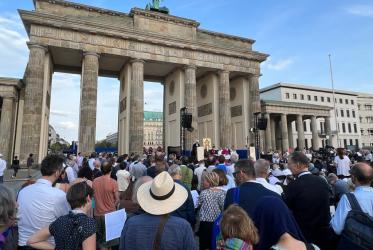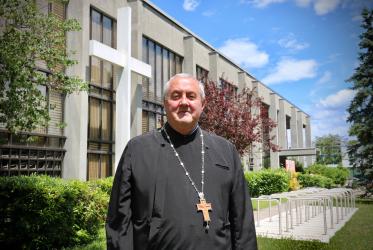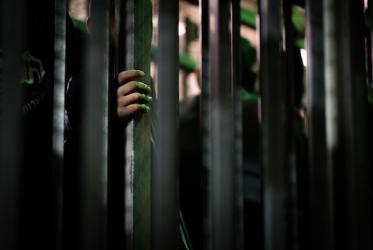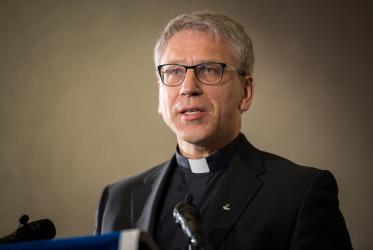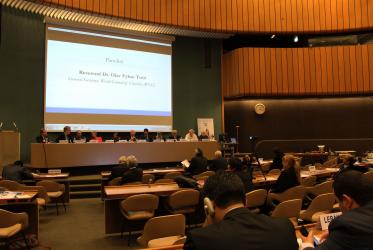Displaying 1 - 20 of 45
"A world free from nuclear weapons is possible"
11 September 2023
WCC honoured with Geneva Engage Award
01 February 2022
WCC well-represented in Religions for Peace leadership
07 October 2019
Religions for Peace assembly convenes in Lindau
19 August 2019
A moment in ‘Time’: an interreligious vision in Erlangen
20 December 2018
Tveit: “We are called to embrace the gifts of the others”
07 November 2017
WCC students study what makes a peace communicator
18 July 2017
G20 summit: call to pray for peace in Hamburg
07 July 2017
Islam and Christianity: finding the common ground
16 March 2017
An interview with the Ethiopian Patriarch, Abune Matthias
14 February 2017
